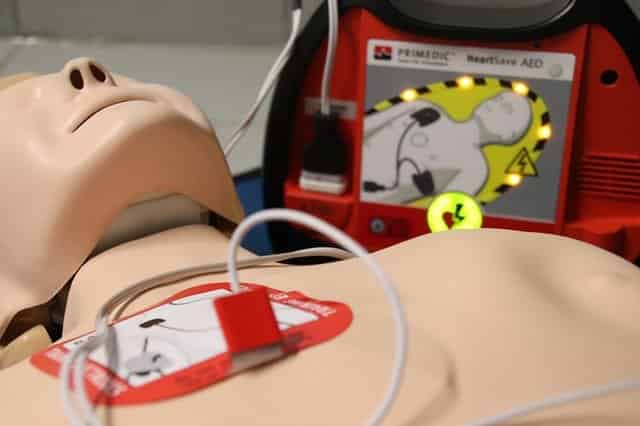What are the Benefits of Completing a First Aid at Work Course?



First Aid at Work and the benefits of training
Typically, emergency services should be called during workplace incidents; however, to ensure that emergency care is provided as soon as possible, a qualified first aid responder can attend and manage the incident at the workplace. This blog will explain and outline the benefits of training as a first responder for work purposes.
So, what are the benefits of completing a first aid at work course? By completing a First Aid at Work course, an individual can accept responsibility, take control, and manage the incident before emergency services arrive, which could save a life and aid recovery.
Slips, trips, and falls are among the most prevalent hazards in workplace environments, often resulting in injuries such as fractures, concussions, or sprains. In situations that do not qualify as emergencies, a trained first aid responder should take charge of the incident, ensuring that the affected individual receives immediate attention. Should the situation escalate to a point where emergency services are required, the first aid responder must provide appropriate care and stabilisation for the victim until professional medical help arrives, and there will be a delay until they arrive, where a first aider should use this time to get information about the patient and the incident.
A first aid responder can provide essential treatment and care for a range of injuries, from minor wounds to more serious conditions. By enrolling in a First Aid at Work course, individuals gain the necessary knowledge to effectively assess and manage workplace incidents. This training enhances the responder's ability to deliver immediate and appropriate care while also empowering them to implement preventive measures that can significantly lower the risk of future injuries. Training in first aid can be life-saving during critical situations and greatly contribute to the overall well-being and recovery of affected employees. A first aid responder holds a vital position in the workplace, offering treatment and care for a diverse range of injuries, which can vary from minor abrasions and sprains to more severe conditions such as fractures or cardiac emergencies. Enrolling in a comprehensive first aid at work course equips individuals with the essential knowledge and skills needed to accurately assess the situation, perform necessary interventions, and manage a variety of workplace incidents with confidence and efficiency.
Training not only improves the responder's capability to deliver immediate and appropriate care, but it also instils an understanding of the underlying principles of first aid, including the importance of rapid assessment, the ABCs of emergency treatment (Airway, Breathing, Circulation), and the correct use of first aid equipment. Additionally, participants learn to recognise the signs of more severe injuries and illnesses, allowing for timely escalation to professional medical services when required.
Below, we have listed some additional benefits of completing a First Aid at Work course, including how the course improves workplace safety and boosts team morale.
Improves overall safety in the workplace
The general sense of safety and risk will improve. First responders are trained to manage workplace safety, identify potential risks, and respond effectively to emergencies.
Reduces repeat accidents
If an accident does occur, it will always be handled safely by a qualified employer, and the likelihood of a repeat accident will be reduced as data on how to prevent such accidents is collected.
Encourages teamwork
First aid at work courses are not only for individuals; they can be completed as a team, and employees will learn to work together to provide safe care when needed.
Improves company culture
A first-aid training course can be used as a team-building activity, demonstrating the company's commitment to fostering a positive work environment.
Reapply practices outside of the workplace.
Those who have completed first aid training will be better equipped and prepared to assist in situations that arise outside the workplace.

 CART
CART 